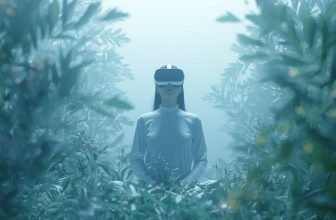
When you are able to view things or places that you have never been, this is remote viewing. This can be traced back to ancient times but has become popular again in the 1930’s.
There have even been times where the military has used remote viewing as a way to understand projects such as the Stargate Project that was completed in the 70’s.
There have been studies that have discussed the idea that people have been able to find things that are missing or lost by visiting places with this psychic gift. Maybe you have had your own experiences finding lost items or pets with remote viewing and you know how useful this skill can be.
How to Remote View
Here are some ways that you can do your own remote viewing:
Set Your Environment
Find a place that you can go that will let you be there without noise or distraction. You need to be able to concentrate on what you are doing.
Stay Calm
Do different exercises to be mindful of where your mind is going. Try breathing deeply and meditating so that you can completely relax.
Get Your Mind Clear
Don’t let thoughts come into your mind and if they do push them to the side.
Find a Location You Want to Visit
If you have lost something that you want to find or you want to check out a vacation place before you spend any money, this is the time to do that. Think of a place that you have always wanted to visit.
Think of this place that you have no clue about but that you can visit later so that you can see if your remote viewing skills worked. If you can’t visit, make sure you can see a picture of it.
Journal It
Before you run off to see this place and to make sure that it is validated, write down what you see. Write down every detail that comes in your mind. You can write down landmarks, drawings, the things you saw, the things that you smelled or heard.
When you have enough details, you can stop. Put it all down though so that you can see how much your skills have shown you.
Check it Out
Now is the time to check out your results. Go to the place that you remote viewed. If you can’t get there, ask someone to take pictures or to send you a video of the place. If you were looking for a lost item and you didn’t find it, try this again until you do.
Don’t forget to write all of your results in your journal so that you can compare your results with the next time that you want to try your remote viewing skills.
Final Thoughts
When you try this, it won’t always be easy. Keep practicing until you are able to get to the places that you want to be at in your mind. Once you become better at this you can see that you can find the places fast and that you can be very detailed in your findings. Have you ever been successful at remote viewing?






‘Finding lost items’ through remote viewing raises ethical questions about privacy and consent when tapping into others’ spaces or belongings. An ethical framework may be necessary as interest in this practice grows among enthusiasts.
‘Final Thoughts’ suggest ongoing practice is necessary for improvement in remote viewing skills. This aligns closely with theories of neuroplasticity which posit that consistent mental exercises can enhance cognitive abilities over time.
‘Journaling’ results post-experimentation not only aids in self-reflection but also offers a structured way to track progress. This method could align well with scientific methodologies employed in psychological research to measure outcomes effectively.
‘Setting your environment’ is a crucial step in many meditative practices. However, it would be beneficial to incorporate findings from cognitive psychology regarding optimal conditions for enhanced mental clarity during remote viewing attempts.
‘Checking out results’ adds an empirical dimension to what might otherwise remain anecdotal claims. It would be advantageous for practitioners to document their findings systematically to contribute meaningfully to collective knowledge on this subject.
The phenomenon of remote viewing is indeed fascinating and raises significant questions about the nature of consciousness. While historical accounts provide intriguing insights, empirical validation remains essential for broader acceptance within the scientific community.
This article elucidates the practice of remote viewing well. However, it would benefit from a deeper exploration of the psychological mechanisms involved and their implications for our understanding of perception beyond conventional sensory experiences.
Remote viewing as discussed here opens an interesting discourse on the limits of human cognition. It is imperative that we approach such claims with a critical yet open-minded perspective to distinguish between subjective experience and objective reality.
Furthermore, historical military applications highlight the intersection of practicality and esoteric practices, prompting further inquiry into how such methods could influence strategic decision-making in both past and present contexts.
Indeed, while anecdotal evidence can be compelling, rigorous scientific methodology must guide our exploration into such phenomena to avoid conflating personal belief with universal truth.